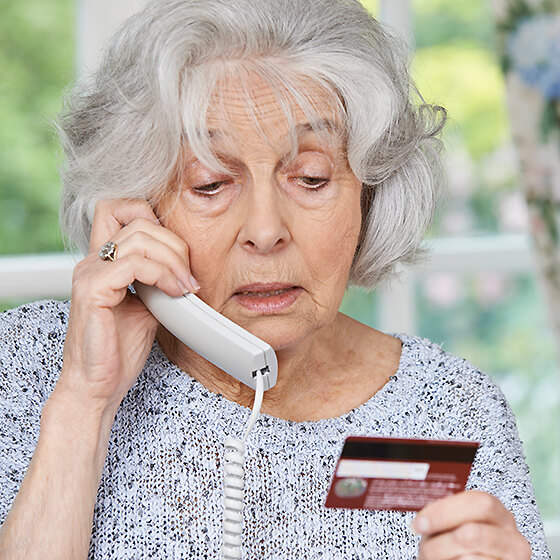As COVID-19 has changed the layout of our society and increased our dependence on being physically distanced, the scammers have taken advantage of this to profit off of people’s vulnerability in reaction to the pandemic. We have adjusted our habits to keep ourselves and our community safe through the use of online and over-the-phone communication to prioritize the stay home order. However, due to the increased habit of doing appointments and important banking over the phone or online, scammers have been able to strategize and take advantage of people, especially seniors, using these platforms. As a senior, being informed about the scams can help keep you knowledgeable and safe from these strategies.
COVID-19 Scams
- Payment Scams
Official agencies, including government agencies, will not solicit payment through cash, wire transfers, cryptocurrency or gift cards.
- Errand Scams
Shady characters will act kind and offer to purchase items for you or run errands for you so you can stay safe and physically distanced. However, they will use this opportunity to grab your cash and leave without performing the task. Always ask a trusted friend or hire a legitimate service to avoid these scams.
- Package Scams
Leading up to major holidays, there is a rise in text-based and email-based links that lead to websites that are impersonating legitimate delivery companies. Companies will not ask for money or information via text. And emails should be looked carefully at before trusting them. Ask a trusted friend to help you vet emails for spelling mistakes or suspicious email addresses. When in doubt, do not follow any links. Go directly to the website to update information.
- Charity Scams
Global emergency and disasters lead to good-natured charities. However, with the rise of legitimate charities also comes the danger of illegitimate charities. Ensure you do extensive research before making any donations. Using charities that are sponsored by the government of Canada are a safe choice.
- Vaccine Scams
There is no payment option for reserving an appointment, joining a clinical trial or getting ahead in line in a queue. Be cautious of calls, texts or emails that ask for a payment, financial information or your social insurance number. If anyone communicates with you, do not respond and instead hang up and reach out through a trusted number on their official website.
Times are tough and scammers make it tougher. Seniors are especially vulnerable to scammers and need to be extra cautious to ensure they are not being taken advantage of. Some takeaways: do not give out any personal information over inbound calls, do not follow links – go directly to the official website and always ask for help from your family or trusted friend before making any decisions you are unsure about.
We also recommend you check these related posts in our Home Care Services blog:

